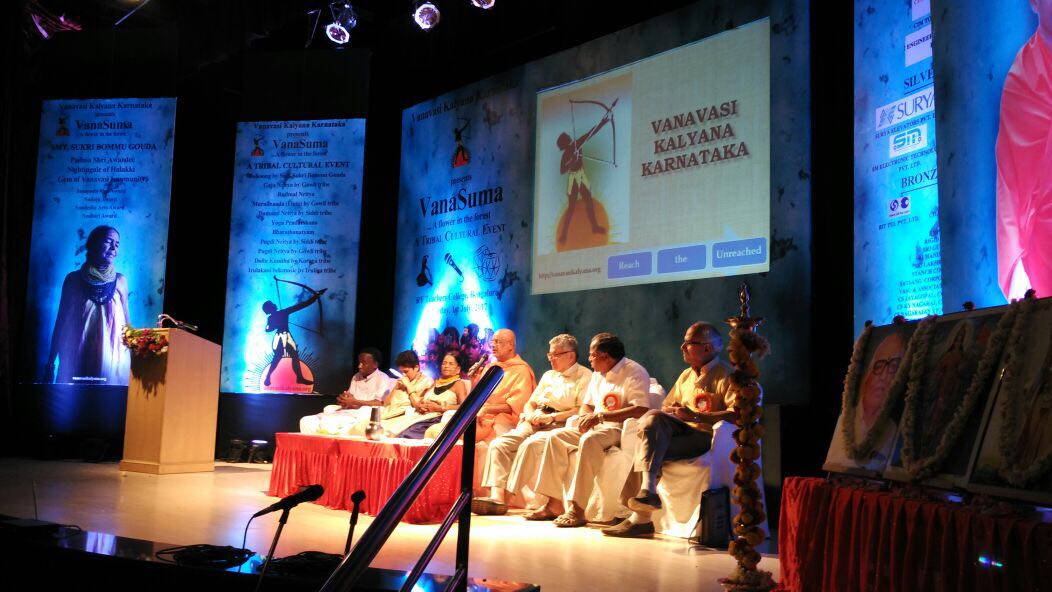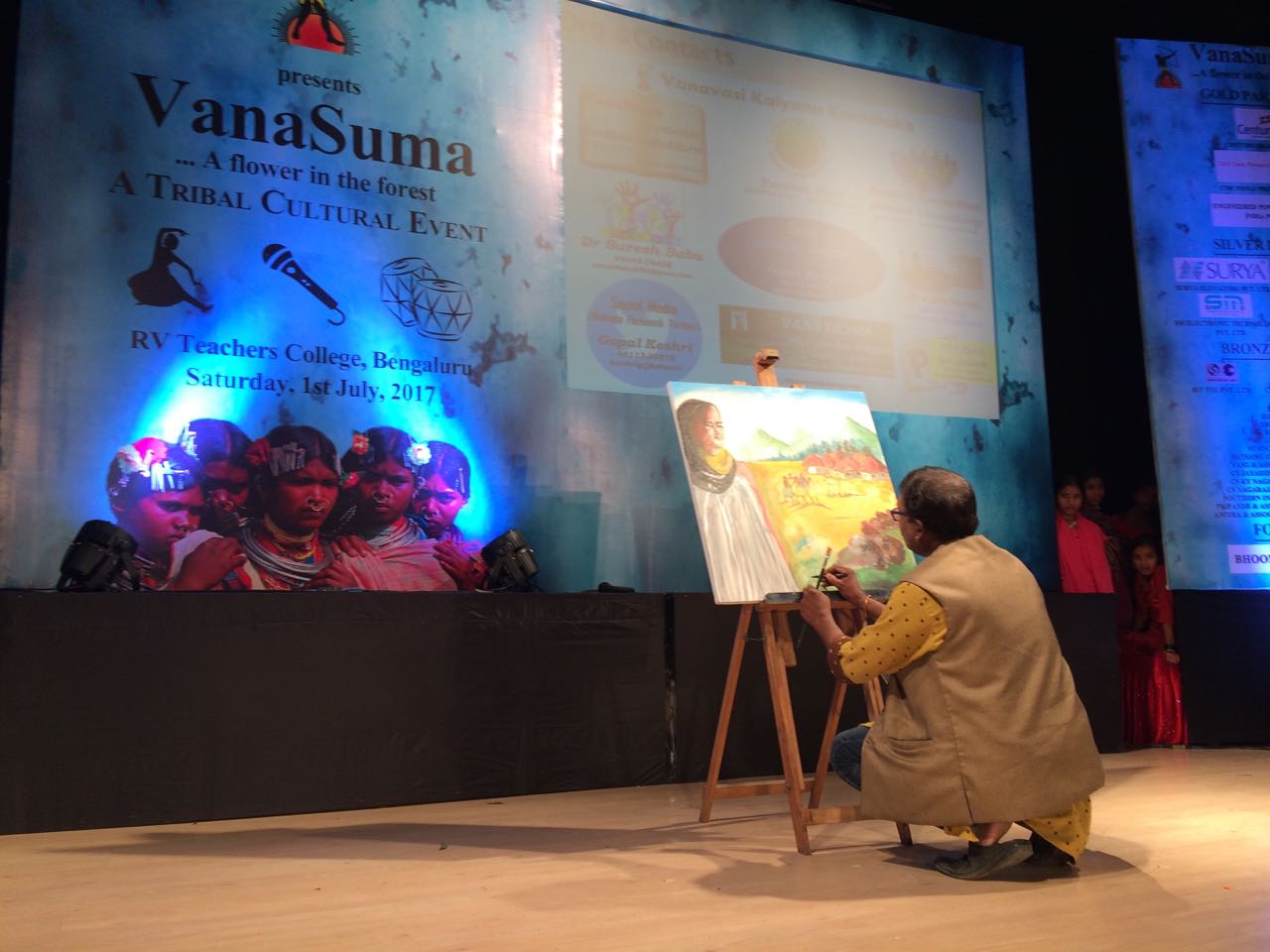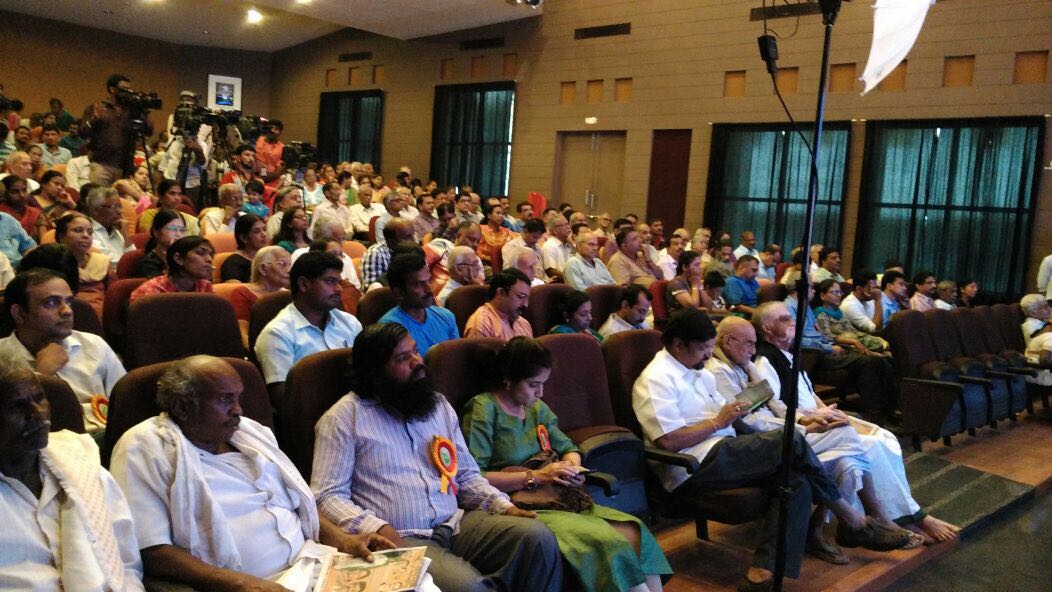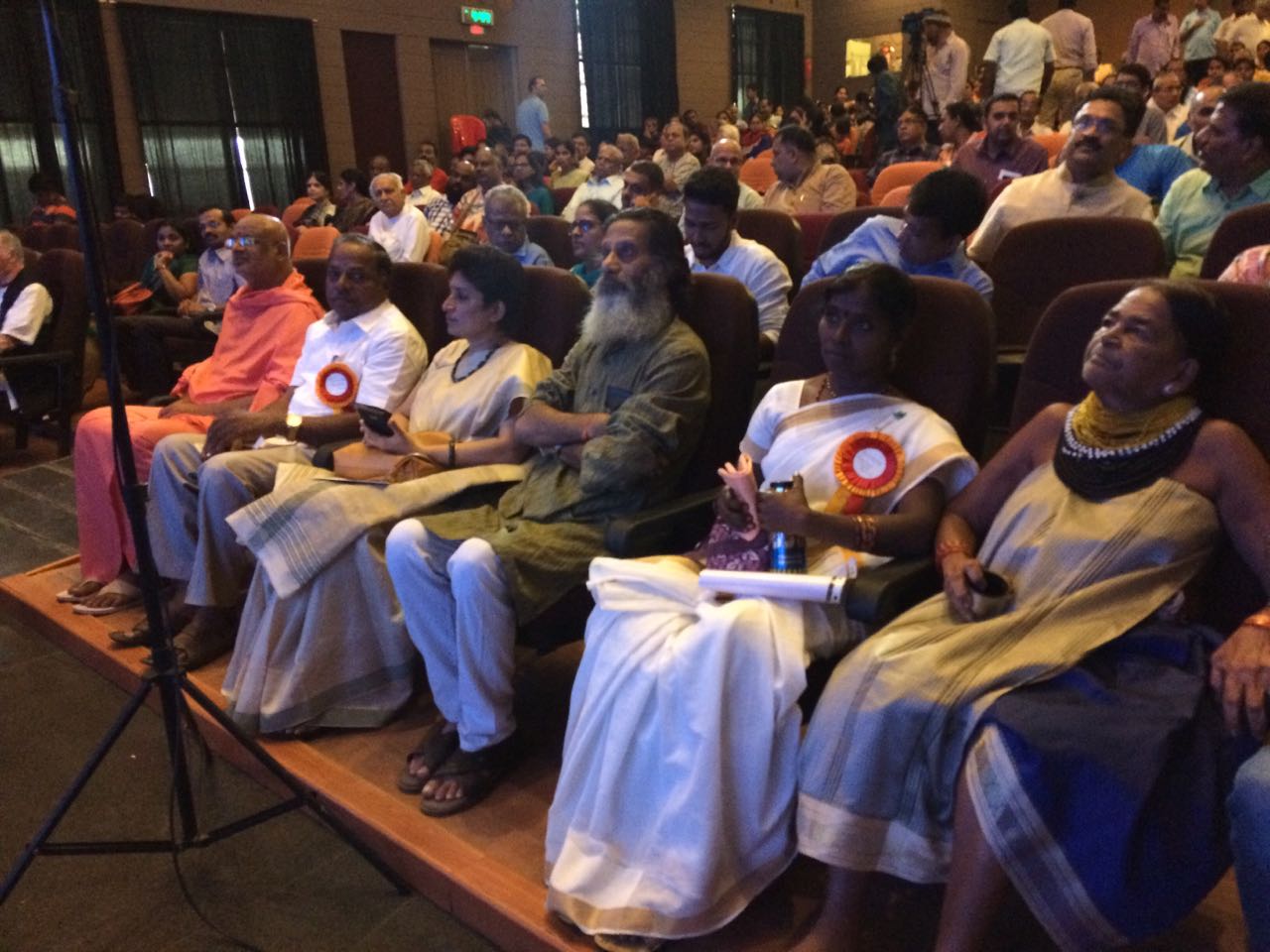
July 1 2017, Bengaluru: The Vanavasi Kalyan Karnataka had organized the event “VanaSuma – A flower in the forest” at RV Teachers College, Bengaluru. A scintillating presentation of dance and folk music of various tribal communities of Karnataka was offered to the audience. The primary highlight of this program is the presence of the nightingale of the Halakki Vokkaliga tribes, the gem of Vanavasi, Padma Shri awardee Sukri Bommu Gowda. She was felicitated with VanaSuma in the divine presence of Sri Sri Sowmyanatha Swamiji, Sri Adichunchanagiri Bengaluru Shaksha Math. Sri Ashok Satheji, chairman of Pragati industries Bengaluru was honored with the Vana Ratna award.


Sri Shantaram Siddiji, from SIDDI TRIBE, addressed the audience and emphasized on presevation of art and culture of our country and community, and encouraged the nagaravasis (city dwelling people) to hand hold the vanavasi brethren, to help them find the right place in an integrated society true to the spirit of Mahaan Bharat.
 Smt. Sukri Bommu Gouda belongs to the Halakki Vokkaliga tribe. The Halakki women sing about everything one cannot imagine. From fantasy to daily life chores, from marriage to protest. Sukri Ajji, as she is fondly known, began singing early along with her mother and she has a collection of more than 1000 songs, these songs have been passed on for generations while she has added on some of her own over past several decades. Ajji has been honoured with prestigious awards like Janapada Shri Award, Naduja Award and the Alva Nudisri Award. Sri Babun Ghosh sketched out a beautiful portrait of Smt Sukri.
Smt. Sukri Bommu Gouda belongs to the Halakki Vokkaliga tribe. The Halakki women sing about everything one cannot imagine. From fantasy to daily life chores, from marriage to protest. Sukri Ajji, as she is fondly known, began singing early along with her mother and she has a collection of more than 1000 songs, these songs have been passed on for generations while she has added on some of her own over past several decades. Ajji has been honoured with prestigious awards like Janapada Shri Award, Naduja Award and the Alva Nudisri Award. Sri Babun Ghosh sketched out a beautiful portrait of Smt Sukri.

Various vanavasi groups performed on the stage and here is a short gist.
Gaja Nritya
The Gowli tribe performed the “Gaja Nritya”. The Gaja Nritya is a celebratory dance of the community. The specialty of this dance is that the performers adorn large sized clothing depicting the size of elephants and use their hand to gesture like an elephant. This dance is celebrated with drum beats
Dollu Kunitha
The Koraga tribe presented the “Dollu Kunitha”. The Dollu kunitha is a traditional art form, is played on auspicious occasions like celebrate the birth of a baby, marriage etc. and the dance form varies based on the event / occasion.

Irulikani Folk Music
The closely knit community of some 25,000 people, spread across the south, live in houses made of mud, clay and dry leaves. They presented the mesmerizing Irulikani folk music.
Gowli’s Pugdi Nritya
The Gowli tribe performed “Pugdi Nritya”. The pugdi nritya has two versions, one performed by the Gowli tribe and the other by Siddi tribe. In the version presented by Gowli tribe, the performers dance in sitting position and are performed for long durations and during festivals.
Damami Nritya
The Siddi tribe presented “Damami Nritya”. Damami is an instrument made of the bark of the tree of the same name. In this dance form, the men play the Damami and the women perform the vocals to celebrate joyous occasions. The dance is played all night, the dancing groups typically could be men only, women only or men and women perform together. The songs are mostly about nature, birds, animals, fruits, flowers etc.
Siddi’s Pugdi Nritya
The Siddi tribe performed their version of “Pugdi Nritya”. In this version, the performers hold empty water pots and blow into the pots that produces sound Murlinaada.
Gowlis are considered as the descendants of Shri Krishna and their major occupation is to take care of the cows, and to entertain themselves, the tribals play Muralinaada. A dazzling conclusion to this wonderful event and the highlight of the event was a fascinating performance by Padmasri Sukriji.






